#groi
Text
Few moments in Alex’s life would stick out like this one. There was a rising panic in her throat, pulsing against her airway. Panic and grief gripped her like icy hands, working to strangle, and she wasn’t sure if what she choked down was a sob or vomit. Her hands trembled as they held the paper. She hadn’t thought of this.
The letterhead read simply, PAST DUE- FINAL NOTICE.
With everything going on, she’d simply forgotten about the matter until she swung by the loft. She should have sent Kelly, should have set up something earlier to deal with this. Kara was six months behind on her rent and she was going to be evicted if she didn’t pay.
Which she never would.
Alex had quietly accepted, about a month ago, that Kara wasn’t coming home, that all their methods had been exhausted, that her sister was lost in an infinite, shattered Phantom Zone, never to be found. She’s finally gotten the martyrdom that she’d been unknowingly seeking since she arrived on Earth.
She was keeping it bottled up, because the others still believed, even Brainy, who had to know the odds.
Alex seethed with a towering rage. There were some nights when, lying awake in Kelly’s arms, she’d fantasize about how she’d punish Clark for failing Kara, or what she’d do to Lex Luthor if she got her hands on him. Sometimes it would even be J’onn she raged at, or Lena.
She saved them all so many times, threw her life and body and soul in front of all them as a shield and took on their misery and suffering on top of her own, and though it was like drops cast in the ocean of Kara Zor-El’s grief, she felt every blow, every loss. Alex’s falling tears stained the letter as she thought of every time Kara paced this apartment, excoriating herself for her failures whenever she couldn’t be in five disasters at once.
Alex didn’t want her to be a superhero. She didn’t want that need to throw herself between others and their own suffering to consume Kara’s life, but it had.
Not for the first time, Alex wished that Kara had just stayed on the ground and let her plane crash. It was a selfish, hateful impulse. Kara would never have let it happen and even if she had, something would have prompted her to put on that red and blue costume and fly. It was what she was for.
Alex raged anyway. Fuck that little shit Wynn for making her a costume. The little pervert probably just wanted to make her try shit on to see her half naked. Fuck J’onn for recruiting her, fuck Clark for abandoning her… and… and…
The paper crumpled and so did Alex, sobbing. This was all her fault. If only…
“Alex?”
She hadn’t heard Lena come in. She’d long ago given up heels. Hell, shed given up. She was a wearing a hoodie that Alex knew was Kara’s and her hair was in a loose ponytail at the base of her neck, and if asked when she last ate or sleep, she’d have lied. Alex already knew the answer: she ate when someone remembered to feed her and she slept on a cot in her lab as she tortured herself.
Lena was the only one that Alex couldn’t rage at because Lena was already punishing herself. Kara would be furious if she knew how they were letting Lena treat her health.
Without a word, Lena gently grasped the letter and Alex released it.
Lena read it, frowning.
Then she pulled out her phone.
“Jess, I have a task for you. I’m going to send you a pic of an eviction letter. I want you to pay off the back rent.”
“Lena,” Alex began.
Lena waved her off.
“I want the building. Set up some shell companies. No one can know it’s me. Try to negotiate so it looks legit, but they can name their price. I want it done by tonight.”
Lena hung up.
“This is her place,” Lena said, softly.
“You didn’t have to do that,” said Alex.
“Yes, I did. This is her place. She deserves to come back to it,” Lena dropped onto the sofa beside her. “I will never give up. I don’t care if I’m still trying to bring her home when I’m old and gray, it’ll be worth it to see her one more time.”
Alex felt a wave of grief overwhelming her.
“Besides,” Lena forced cheer into her voice. “I spent a billion dollars so I could hang out with her at work. What’s an apartment building?”
Alex jolted. It was as if she watched a wine glass, which had toppled and shattered and cast its contents across the floor, leap back into position. As if the shards of crystal returned to their proper places and the cracks sealed, and the wine splashed back to its proper place, not a single shimmering golden drop lost. When the understanding snapped into place, it was like a lightning bolt. She felt too large for her skin, and the fine hairs at the back of her neck stood, as though bearing a charge.
Holy shit. Holy fucking shit. Lena was in love with Kara.
She could see it now. The love radiated from every pore of Lena’s skin, undulled by the grief that draped her like a nighted cloak, as gold shimmered untarnished beneath dust. Alex’s heart was about to break again.
“I have to get back to the lab.”
“Why are you here?” Alex said, softly.
“I was… I’ve been spending the night. I should have asked. I’m sorry.”
“Kara would want you to.”
Kara would want you to move on, Alex thought. She would want you to find someone and be happy and think only of her in fond memories. She would gladly martyr herself for you, too. You above all. She never stopped defending you even when…
Now there were two wine glasses, side by side, almost touching but not quite, promising a toast unsaid.
Oh.
Oh God.
Alex launched off the couch and threw her arms around Lena, holding her tight. Lena recoiled a little; she seemed to dislike hugs, almost like she didn’t understand them, even as she’d melted in Kara’s embrace dozens of times.
How had she been so blind?
“We’ll get her back,” Alex said.
“We will,” said Lena.
Later, Alex stood off to the side, her veins singing with unbridled joy after Kara released her from a full on, no-powers bear hug. She watched as the others embraced her and slapped her back and welcomed her home while Lena stared at here like she couldn’t believe she was real.
Limping, haggard, Kara suffered their joys with quiet reserve, pushing a little closer to her ultimate destination with each one until she stood in front of Lena.
The hug was awkward, tentative, but Kara thrust herself into it after a hesitant moment and Lena molded against her, the pair standing cheek to cheek a beat too long. Lena pulled back and Kara pulled after her, leaning in, only to dance back and do that awkward little shift.
“Kara,” Alex blurted. “For fuck’s sake, just do it.”
Kara looked at her, wide-eyed and a little betrayed. Kara was beyond honest to a fault: Alex knew that after Kara nervously told her about the infamous “I flew here on a bus “ incident. Kara was honest to the core of her very being, sickened by the act of lying.
To Alex’s surprise, it was Lena’s hands on Kara’s shoulders that turned her away. Kara looked back and her and Lena brought her hands to Kara’s cheeks, resting her palms against the abnormally pale skin of her face. Kara froze for two heartbeats and then gently put her hands on Lena’s sides and pulled her in, there bodies slotting together as their lips found one another, Kara leaning over Lena a little more with the added height of her boots as Lena collapsed into her, tears glittering on her cheeks. The kiss carried on until Alex cleared her throat.
Everyone in the room was stunned save Alex.
“Guys,” she said, “let’s give them a little privacy, huh? We can celebrate later.”
As the others filed out of the room, Lena raised her head from where it had lain on Kara’s shoulder and mouthed a silent thank you.
#supercorp#supergirl fanfiction#supergirl#supercorp fanfic#lena luthor#kara danvers#kara x lena#karlena#supergirl fanfic#ficlet#return from the phantom zone#grief and joy#or as I call it: groy#angst and fluff#angst with a happy ending#first kiss#first supercorp kiss#supercorp first kiss
528 notes
·
View notes
Text















welthauptstadt germania, artem demenok 2005
#welthauptstadt germania#artem demenok#documentary#2005#architecture#albert speer#third reich#berlin#olympiastadion#neue reichskanzlei#bundeskanzleramt#james simon gallery#esposizione universale di roma#1938#pier paolo pasolini#medea#boris groys#alexander sokurov#boring postcards
4 notes
·
View notes
Note
Whether yours or something you've read, what's the best definition of art/a work of art?
If definitions come in descriptive and normative forms—descriptive: finding the essence of all the disparate phenomena we do or could call art; normative: deciding what unites the limited set of phenomena that deserve the name of art—then I believe a descriptive definition may be impossible.
Art could be almost any practice or object, because any practice can be done and any object made artfully. Whole lives have been described as works of art, as have casual gestures of the hand. Art may just refer to some latent potential for shaped gratuitous interest (i.e., beauty) in the whole human-made world—except that some believe animals capable too, as the birds and the whales do sing, while monkeys and elephants have been taught to paint. Art may just be life transcending itself, reflecting itself, working on itself: the final secret of whatever is the principle of vitality, "the force that through the green fuse drives the flower." "The art itself is nature."
All very psychedelic, but we like to make judgments, too, and even need to do so, because we have only so many hours in the day, only so much room in the gallery, only so many weeks on the syllabus. We need, therefore, a normative definition. Most of the modern ones since Kant have fixed on art as "uselessness," which partially inspired my word "gratuitous" above, i.e., art is whatever is not practical, whatever exceeds and therefore both redeems and judges the prevailing utilitarianism of the modern world. As Gautier's original l'art pour l'art manifesto quips, elevating art over use, "The most useful room in the house is the lavatory."
Contemporary theorist Boris Groys has historicized this idea with his slogan "art emerges as the death of design." In other words, before the modern period, art was reduced to its use, largely as propaganda: it ornamented and inculcated the ideas of the ruling classes, from the bard celebrating aristocratic heroes in epic song to the builder fashioning cathedrals to cow the illiterate parishioner on behalf of the Catholic Church to the painter making portrait after portrait of the old regime's elite. Art, therefore, was no more than design, a constrained set of protocols for elaborating and augmenting social power. Art in the modern sense of the gloriously inutile was only invented with the French Revolution, when the radicals, instead of destroying the design of the old regime—throwing the portraits on a bonfire; smashing the altarpieces with a hammer—put them into museums, to be admired for their beauty (complexity, intricacy, intelligence...in short, for their "gratuitous" humanity) now that their inequitable social function had been stripped from them. Art, then, is whatever's left over after the propagandistic element of a piece of design has drained away, which is why we still take pleasure, for example, in Dante, though we don't share his views—and I don't just mean his social attitudes (homophobic, Islamophobic, etc.), but even his understanding of biology or cosmology.
I am persuaded by Groys's historicized normative judgment that art is the death of design, though it does create a paradoxical choice for the modern artist: you can either make a work of design, i.e., propaganda, in the knowledge that only what exceeds its propaganda function will finally matter, or you can try to make a work that has no propaganda function at all. The first choice leads to the slight air of bad faith that always hangs around even the very best social and political art, the double sense that an urgent problem is being exploited and that art itself is being betrayed; while the second choice leads to the purity spiral of art without content, all those blank canvasses and boxes piled on the floor that, as someone once joked, must come pre-installed in the modern art museum.
There is no solution to this dilemma, no way out of this paradox. (Groys: "only self-contradictory practices are true in a deeper sense of the word.") As the French Revolution and surrounding developments made it possible for art to emerge as the death of design, so I expect present and future historical or technological circumstances to alter the terms of art once again. We will just have to see what opportunities and challenges arise. Groys believes we currently live in a period of total aestheticization, due in part to technology's total replacement of nature, and that this total aestheticization makes art totally revolutionary since no regime or status quo can stabilize itself with its being instantly relegated to a state of defunctionalized design under our aesthetic gaze—another way of explaining why irony is now all-pervasive and inescapable, since every value now exists under the sign of its own inherent potential to become just one more piece in the museum.
Finally, though, and to escape whatever is deadening in Groys's admittedly persuasive celebration of art's apocalyptic triumph as absolute irony, I come back to older ideas, even at the risk of what a sophisticate like Groys would see as romantic kitsch, to Socrates instructing the ephebe that poetry can only be divine madness, to Emerson lecturing the practical 19th-century that the poet travels in divine realms, above all to The Birth of Tragedy and the vision of art elaborated there: art, said our mad philosopher back when he was a mild academic, is the articulation in a still and ordered image of the tearing, ferocious, violent flux at the heart of life: Apollo's temporary arrest of Dionysius. Art can be anything, and is now everything, but art that does not aspire to this impossibility—art that does not wrestle with this awful angel—does not deserve the name.
7 notes
·
View notes
Text
The communist revolution is the transcription of society from the medium of money to the medium of language
Boris Groys The Communist Postscript
3 notes
·
View notes
Text
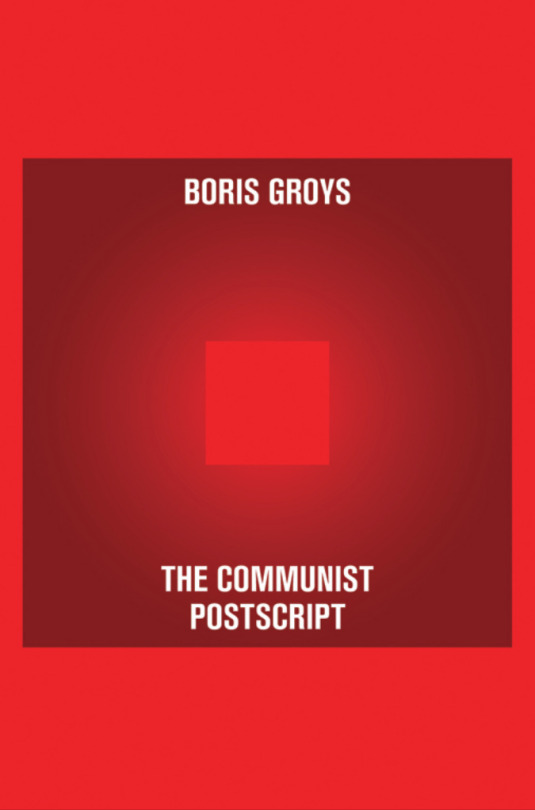
Introduction
The subject of this book is communism. How one speaks about communism depends on what one takes communism to mean. In what follows, I will understand communism to be the project of subordinating the economy to politics in order to allow politics to act freely and sovereignly. The economy functions in the medium of money. It operates with numbers. Politics functions in the medium of language. It operates with words - with arguments, programmes and petitions, but also with commands, prohibitions, resolutions and decrees. The communist revolution is the transcription of society from the medium of money to the medium of language. It is a linguistic turn at the level of social praxis.
Thus, it is not enough to define man as a speaking being, as is generally done in modern philosophy, notwithstanding all the subtleties and differences that distinguish one individual philosophical position from another. So long.
As humans live under the conditions of the capitalist economy, they remain fundamentally mute because their fate does not speak to them. If a human is not addressed by his or her fate, then he or she is also incapable of answering it. Economic processes are anonymous, and not expressed in words. For this reason, one cannot enter into a discussion with economic processes; one cannot change their mind, convince them, persuade them, or use words to win them over to one's side. All that can be done is to adapt one's own behavior to what is occurring. Economic failure brooks no argument, just as economic success requires no additional discursive justification. In capitalism, the ultimate confirmation or refutation of human action is not linguistic but economic: it is expressed not with words but with numbers. The force of language as such is thereby annulled.
Humans will first truly become beings who exist in language and through language only once fate is no longer mute and no longer governs at a purely economic level but is instead formulated discursively and decided politically from the outset, as is the case in communism. Humans thereby gain the possibility of arguing, protesting, and agitating against the decisions.

INTRODUCTION XVII
of fate. Such arguments and protests may not always prove effective. They may often be ignored or even suppressed, but they are not as such meaningless. It is entirely meaningful and justified to oppose political decisions in the medium of language because those decisions were themselves reached in the medium of language. Under capitalist conditions, by contrast, every criticism and every protest is fundamentally senseless, for in capitalism, language itself functions as a commodity, that is to say, it is inherently mute. Discourses of critique and protest are recognized as successful when they sell well, and to have failed when they sell poorly. Thus in no respect can these discourses be distinguished from other commodities, which are equally silent—or speak only in self-advertisement. Criticism of capitalism does not operate in the same medium as capitalism itself. In terms of their media, capitalism and its discursive critique are incompatible and so can never encounter each other. Society must first be altered by its linguistification if it is to become subject to any meaningful critique. Thus we can reformulate Marx's famous thesis that philosophy should not interpret the world but instead change it: for society to become subject to criticism, it must.

XVIII INTRODUCTION
First, become communist. This explains the instinctive preference for communism felt by all those equipped with critical consciousness, for only communism performs the total linguistification of human fate that opens the space for a total critique.
Communist society can be defined as one in which power and the critique of power operate in the same medium. If the question is posed, therefore, of whether the regime of the former Soviet Union should be regarded as communist—and this question appears unavoidable whenever communism is discussed today—then, in the light of the definition given above, the answer is yes. The Soviet Union went further towards realizing the communist project historically than any other preceding society. During the 1930s, every kind of private property was completely abolished. The political leadership thus gained the possibility of taking decisions that were independent of particular economic interests. But it was not that these particular interests had been suppressed; they simply no longer existed. Every citizen of the Soviet Union worked as an employee of the Soviet state, lived in housing that belonged to the state, shopped in state stores, and traveled through the state's territory by means.
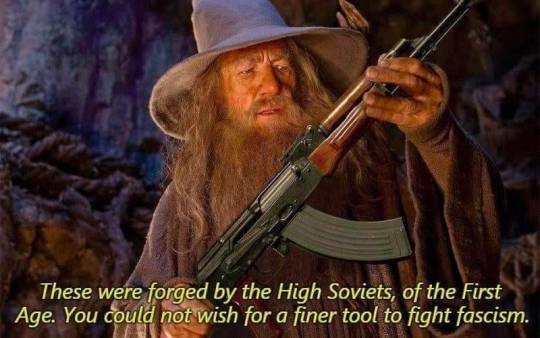
of state-run transport. What economic interests could such a citizen have? Only the interest that affairs of state would improve, so that the citizen of this state would be better able to profit—no matter whether legally or illegally, through work or through corruption. In the Soviet Union, a fundamental identity between private and public interest thus prevailed. The single external constraint was military: the Soviet Union had to defend itself against its external enemies. By the 1960s, however, the military capabilities of the country had become so great that the possibility of belligerent attack from outside could be rated as extremely improbable. From that moment, the Soviet leadership stood in no 'objective' conflict: it had no internal opposition, and it was also subject to no external constraints that could limit its administrative powers over the country. Its practical decisions could therefore be guided solely by its independent political reason, its own inner convictions. Granted, this political reason—because it was dialectical reason—led the Soviet leadership to abolish communism of its own free will. Yet this decision, in no way alters the fact that communism must be considered to have been realized in the Soviet Union. To the contrary: as will.
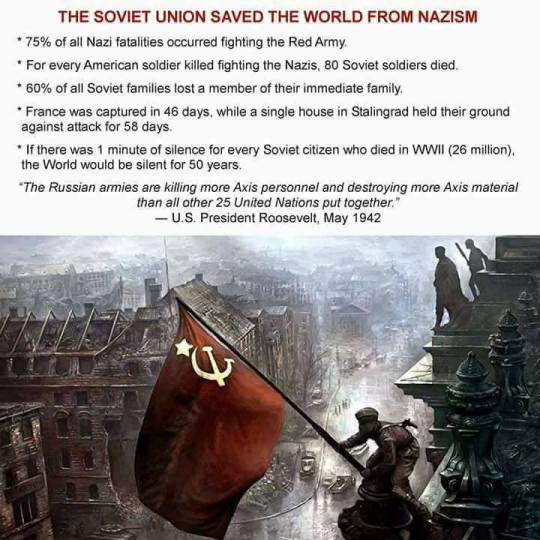
XX INTRODUCTION
Be shown in what follows, it is this decision that makes the realization, the embodiment, the incarnation of communism complete.
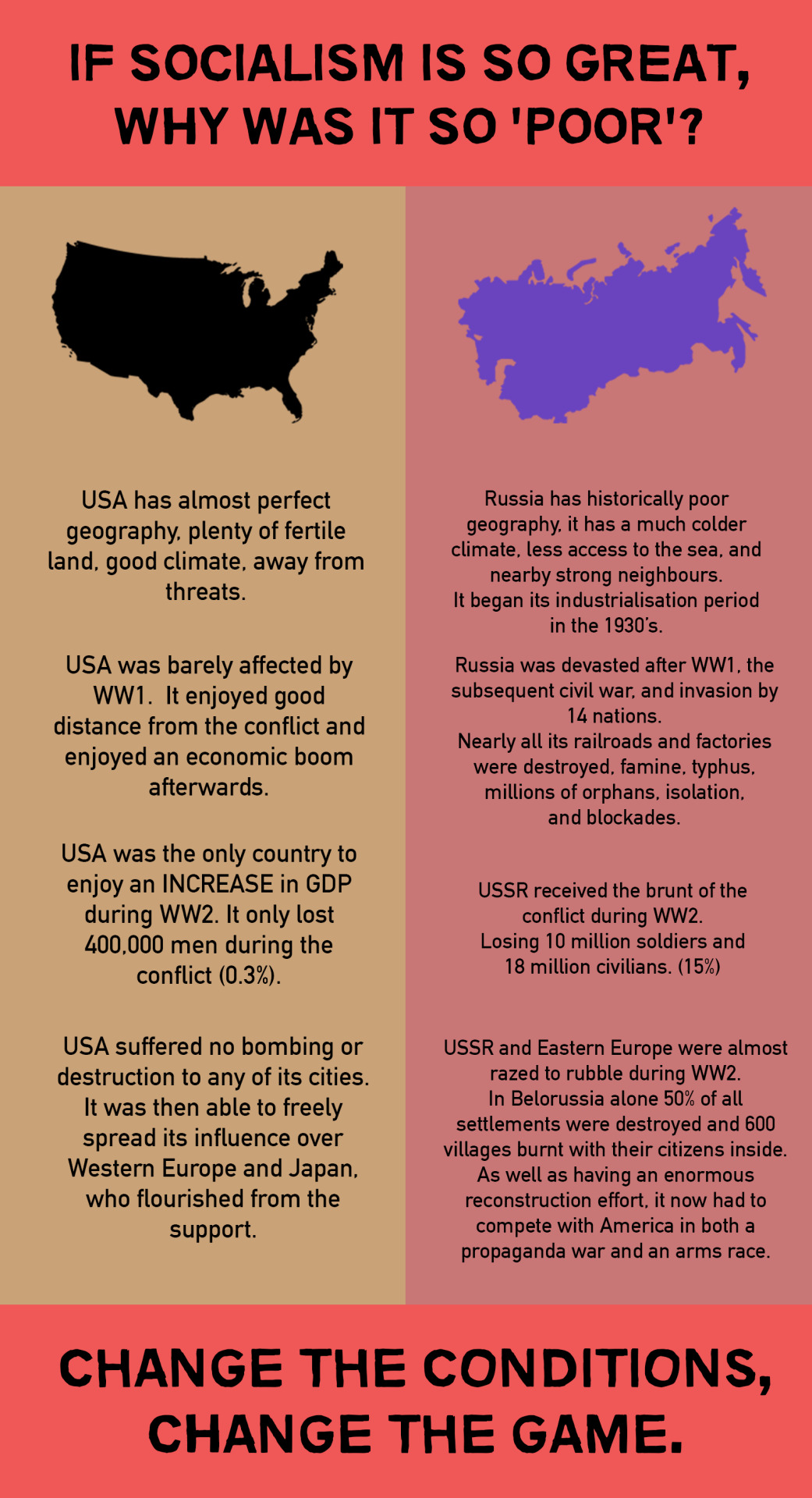
In any case, it cannot be said that the Soviet Union failed economically, for economic failure is only possible in the market. But the market did not exist in the Soviet Union. Hence, neither the economic success nor the economic failure of the political leadership could be established 'objectively', that is to say, neutrally, non-ideologically. Certain commodities were produced in the Soviet Union not because they sold well on the market, but because they conformed to an ideological vision of the communist future. And on the other hand, those commodities that could not be legitimated ideologically were not produced. This was true of all commodities, not just the texts or images of official propaganda. In Soviet communism, every commodity became an ideologically relevant statement, just as in capitalism every statement becomes a commodity. One could eat communistically, house and dress oneself communistically—or likewise non-communistically, or even anti-communistically.
This meant that in the Soviet Union, it was in theory just as possible
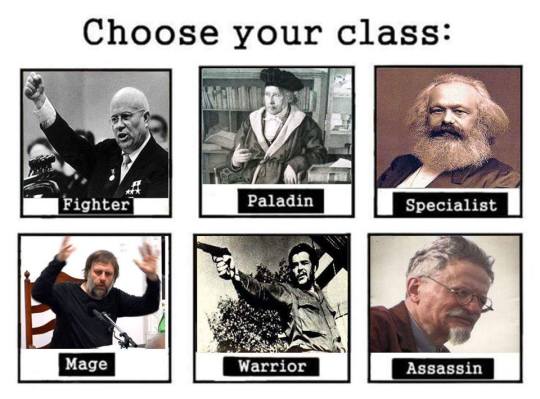
to protest against the shoes or eggs or sausage then available in the stores as it was to protest against the official doctrines of historical materialism. They could be criticized in the same terms because these doctrines had the same original source as the shoes, eggs, and sausage—namely, the relevant decisions of the Politburo of the Central Committee of the CPSU. Everything in communist existence was the way it was because someone had said that it should be thus and not otherwise. And everything that is decided in language can be criticized linguistically as well.
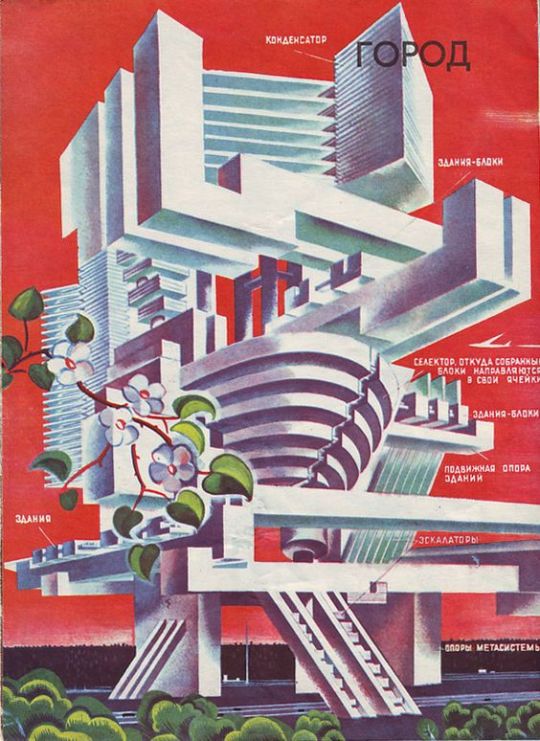
The question of whether communism is possible is, therefore, profoundly connected to the question of whether government, organization, and political administration can be carried out in language and through language. This central question can be formulated as follows: can language as such ever exercise sufficient force for society to be governed by linguistic means at all—and if so, under what conditions? This possibility is often flatly denied: in our era especially, the view predominates that language as such has no force at all and is entirely powerless. This assessment accurately reflects the situation of language under capitalist conditions. In capitalism, language is indeed powerless. On the

XXII INTRODUCTION
Basis of this understanding of language, it is also generally assumed that in communism the ruling apparatuses characteristically acted behind a facade of official language and compelled people to accept the language of power. And this assumption is not entirely unjustified. Indeed, this suspicion appears to be sufficiently confirmed by the long history of political repression in communist countries.
But this leaves open the question of why these oppressive apparatuses acted in favor of one particular ideological conception and not in favor of some alternative conception. For the loyalty of these apparatuses with regard to a particular ideology cannot be taken for granted. To be loyal and to remain loyal, these apparatuses had first to be persuaded, to be won over. Otherwise, they would remain immobile and fail to act, as was indeed the case at the end of the communist states of Eastern Europe. Moreover, under communist conditions, these apparatuses cannot be cleanly separated from the rest of society, for in a society which consists exclusively of state employees—and Soviet society was such a society—the question about who oppresses whom, and how, cannot be posed in the same way as it is in a society in which

INTRODUCTION XXIII
the apparatuses of power are more or less cleanly separated from civil society. When state violence in communist states is considered, it must therefore not be forgotten that this violence was conveyed through language—through commands and decrees with which one might comply but equally might not. The leaderships of the communist countries understood this much better than their opponents did. It was for this reason that these leaderships invested so much force and energy into shaping and maintaining the language of official ideology and were so incensed by minimal deviations from it. They knew that outside of language they actually possessed nothing—and that if they lost their control over language, they would lose everything.
The theory of Marxism-Leninism is ambivalent in its understanding of language, as it is in most matters. On the one hand, everyone who knows this theory has learned that the dominant language is always the language of the dominant classes. On the other hand, they have learned too that an idea that has gripped the masses becomes a material force, and that on this basis Marxism itself is (or will be) victorious because it is correct. In what follows, it will be shown that the
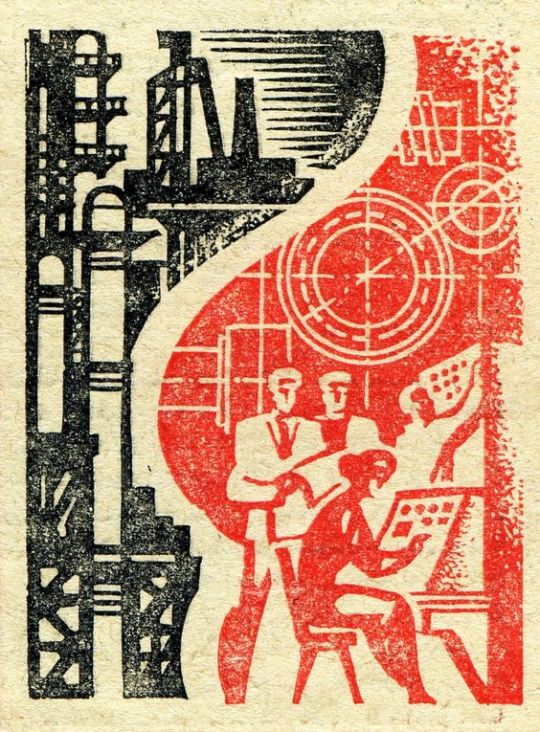
XXIV INTRODUCTION
structure of communist society depends precisely on
this ambivalence. But first another question needs
to be explored: how ought this ‘ideal’ linguistic
compulsion function — this compulsion that can ‘seize’
individual people and potentially also the masses — if
it is to transform thereby into a revolutionary force of
constitutive power?
#the communist post script#Boris groys#Groys#Soviet union maxxing#ussr#lingustification of society#marxism#marxist leninist#communism#marxism-leninism#lenin
2 notes
·
View notes
Text
ひとみに映る影 シーズン3特報 CM15秒
ハッピーグロスマスデー!
大変お久しぶりです。最終章のCMだから飛ばせない15秒です。断じて手抜きではありません。
転職したら休みぜんぜんなくなっちゃったから作業したくなっても
もう疲れちゃって全然動けなくてェ…という事では断じtありまぁす!!!!!
でも絶対エタんないで発売するから最後まで読んでねえええええぇぇぇ!!!!!!
youtube
(ニコ動はこちらから)
・シーズン3情報まとめページ
・ひとみ全体情報まとめページ
最終形態が執筆当初はまだ決まってなかったので、2巻ケツに載せた鳥っぽいシルエットからは少し変わってます。
あのシルエットはこう…途中形態!蒲田くんみたいなもんです!!(無茶文豪)
2 notes
·
View notes
Text
Movie poster for Shazam Fury of the Gods

3 notes
·
View notes
Link
I'm already old, so I was confronted with the concept of the internet very early. As I was confronted with this, I became acquainted with language of infinite flows of information, infinite flows of signs, all kinds of incredible cyber punk possibilities about infinitely enlarging our consciousnesses and so on. But what actually impressed me, from the beginning, was that when we use the internet, what we are doing is relying on a steady and secured supply of electricity. And if electricity is not supplied in the amount that we need, we cannot do any of that. So, we believe our society, culture, science and technology be very dynamic, but the image of dynamism conceals the actual interest in a growing stability of the system. It is only because of this stability that we can survive here, inside the system.
For me, care is the key word to describe our civilization. To do something, to produce something, is to create an object of care, because we do not want to create something that will disappear in the next moment. If we create something, we want it to be kept functioning. This means, be it a car, computer, or whatever, we start a process of care which secures the existence of this object. That is also the relationship we have to ourselves, as elements of this technological civilization. As objects, as bodies, among other technological and artistic objects.
4 notes
·
View notes
Text
«[...] Nella gran parte dei casi race, class e gender fungono da coordinate per definire lo spazio entro il quale ogni parlante viene originariamente posizionato. Anche il concetto di identità culturale svolge un ruolo nell’ambito del medesimo posizionamento originario [Urpositionierung]. Anche se questi parametri non vengono interpretati come determinanti “naturali” ma come costrutti sociali, non vengono in alcun modo depotenziati nel loro effetto. Su questa base il soggetto può solo scegliere se continuare ad aver cura oppure decostruire l’identità culturale conferitagli dal corpo (o dalla codificazione sociale di questo stesso corpo). Tuttavia, entrambe queste infinità, detto hegelianamente, sono cattive infinità, perché non si sa come limitarle o porre loro fine. Si può solo sperare che prima o poi queste riflessioni sulla propria prospettiva si interrompano perché sono finiti i soldi necessari a proseguire nella riflessione.
Oppure sperare finalmente di morire e di non essere più seccati da domande del tipo “da dove veniamo?”, perché allora sarà più importante dove siamo andati.»
— Boris Groys “Post scriptum Comunista”
2 notes
·
View notes
Text
The Strangers: Chapter 1 (2024)

Rating The Strangers: Chapter 1 is something I'm finding difficult. On the one hand, the characters are dumb to the point of frustration and the plot is predictable. On the other, this is a weirdly ambitious picture and I really want to see more. This one's going to make me look like a hypocrite because I won't be recommending it, but I will be sticking with the series.
When their car breaks down in a small town, Maya (Madelaine Petsch) and her boyfriend Ryan (Froy Gutierrez) are forced to stay the night in an Airbnb in the middle of the woods. They don’t realize being there is enough reason for three psychopathic, masked strangers to begin terrorizing them.
I haven’t liked the previous Strangers movies, but only because I love the setup and the films they should be but never become. There’s something elegantly creepy about the Scarecrow, Dollface and Pin-Up Girl masks the three strangers wear. The idea of minding your own business and still being attacked by psychopaths is terrifying, particularly because so much of what’s going on is unanswered. Do the strangers own the Airbnb and have been waiting for someone to rent it so they can play a twisted game? Have been following Maya and Ryan, since they stopped at the diner, hoping the couple would eventually find themselves alone? Is the couple just at the wrong place, at the wrong time? Why are the strangers doing what they’re doing? Are there really only three strangers? Could there be more, wearing duplicates of the masks we've already seen? Wisely, the film keeps these answers close to its chest. The title of “Chapter 1” might lead you to believe that this is a prequel that will demystify every detail from the meaning behind the enigmatic question "Is Tamara here?" to who hides behind the masks, but you’re wrong.
What makes this third chapter frustrating is that the characters only have a sense of self-preservation if the plot demands it. If you think the guy working at the only garage in town has messed with your vehicle, why would you accuse them to their face, unless you want to risk further damage to your car when you leave it in their care? Someone already knocked at their door acting all creepy, so why does Maya decide to answer - and open - the door again later that same night? Why would she and Ryan assume they can rest easy inside a bedroom when they’ve just seen Scarecrow hack his way through the front entrance with an axe? Stupid decisions aren’t limited to the protagonists either; I guess we're supposed to think the strangers are "so crazy" that they just don't care about anything, which is why - even when Maya and Ryan arm themselves with weapons that can inflict serious damage - the strangers still act like everything is under control.
If that weren't bad enough, the movie cheats. Unless we're going to get a big reveal that Scarecrow, Pin-Up Girl and Doll Face are ghosts who can move silently through walls and turn invisible, there's no way they could do what they're doing in this movie. I'm looking at you, screenplay writers Alan R. Cohen & Alan Freedland and director Renny Harlin. The characters' actions and the unearned "scares" are made even more frustrating because you came to this to be scared. You feel the tension in this scenario - far more than everyone on-screen apparently!
Without giving away too much, let me tell you what the Chapter 1 title means. No, it's not a new way to say that this is "the beginning", it's to warn you that The Strangers: Chapter 1 is part of a planned trilogy. The second and third have already been shot. This is important because it means this picture ends in a "to be continued". We've seen more horror movies end on a "dun-dun-duuuuun" note than I can count, and plenty of flicks have found ways to keep their stories going with a "Part 2" but that's not what we have here. The story isn't over; it's too big for 91 minutes! Furthermore, this is NOT a prequel to the 2008 film. It's more of a remake, if anything, as the plot is almost beat-for-beat the same. That should make me angry because that would normally make this a remake that doesn't improve on the original - and therefore begs the question "Why was this even made" - but the conclusion has me intrigued. More than intrigued. I NEED to know what's coming next. Even though this film is subpar and the mid-credit tease about what's coming next is ridiculous, I'll be there when Chapter 2 is released. (Theatrical version on the big screen, May 25, 2024)

#The Strangers: Chapter 1#movies#films#movie reviews#film reviews#Renny Harlin#The Strangers#Alan R. Cohen#Alan Freedland#Madelaine Petsch#Groy Gutierrez#Gabriel basso#Ema Horvath#2024 movies#2024 films
1 note
·
View note
Text
“The radical avant-garde… wanted to completely break with nature in the name of the new industrial world, and with the mimesis of nature in the name of inventing new, unnatural forms of life. That is why the main artistic device of the avant-garde was the operation of reduction. Reduction opens a new perspective on the most effective reproduction - it is always easier to reproduce something simplified than something complicated.”
Boris Groys “In the Flow” 2016
0 notes
Text

#linguistic turns#boris groys#das kommunistische postskriptum#suhrkamp#2006#kulturwissenschaft#philosophie#russland#stalinismus#architektur#kunst#hfg#zkm#karlsruhe#books#manifesto
0 notes
Text
Boris Groys, the aesthetic philosopher—that's who I was forgetting. He's brilliant; his work is sort of congruent with my own (see link above).
2 notes
·
View notes
Text

Boris Groys An Introduction to Antiphilosophy
1 note
·
View note
